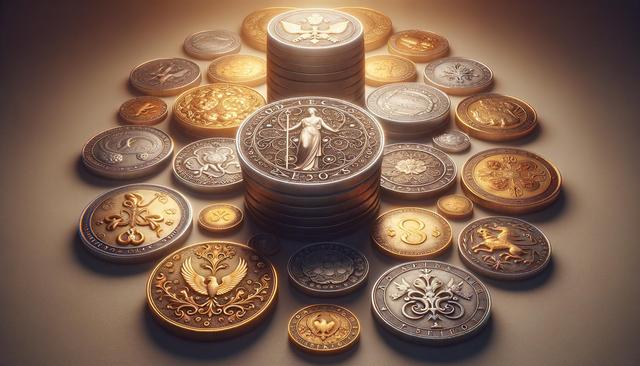The Fascination with Rare British Coins
Collecting rare British coins is more than just a hobby for many—it’s a journey into the nation’s rich history. These coins often feature unique designs, historical figures, and limited mintages that make them stand out. Whether discovered in old drawers, inherited from relatives, or found at coin fairs, these pieces can sometimes be surprisingly valuable. The world of rare coins UK collectors is diverse, with enthusiasts ranging from casual hobbyists to serious numismatists who study coinage in depth.
Rare British coins often gain attention due to their age, condition, and rarity. Many of them were minted during significant historical events or periods, such as wartime or royal commemorations. Collectible British coins offer tangible connections to the past, and their craftsmanship often reflects the artistic and technological standards of their time. These characteristics not only make them appealing for personal collections but also potentially valuable in the marketplace.
Understanding What Makes a Coin Valuable
Not all old coins are valuable British coins. Several factors influence a coin’s value, and understanding these can help collectors make informed decisions. Among the most important criteria are:
- Rarity: Coins with limited mintage or errors are typically more sought after.
- Condition: Coins in pristine or uncirculated condition fetch higher prices.
- Demand: Popularity among collectors can drive up value.
- Historical significance: Coins associated with notable events or monarchs are often prized.
Some rare UK coin values have skyrocketed in recent years, especially as online marketplaces and specialist auctions have made it easier to connect with buyers and sellers. As a result, interest in British coins worth money has grown, with some pieces fetching substantial sums depending on their condition and rarity. Knowing what to look for is key to identifying a coin that could hold significant worth.
Popular Examples of Valuable British Coins
Several British coins have gained fame for their rarity and value. While the list continually evolves with market trends, some consistently remain in high demand. These include:
- The 1933 Penny: One of the most legendary coins due to its extremely low mintage.
- The 2p ‘New Pence’ Error Coin: Minted in the 1980s, this coin featured an outdated inscription.
- The Kew Gardens 50p: A modern coin with limited circulation and an iconic design.
- Silver and gold proof coins: Often struck in small numbers for collectors, these coins maintain strong demand.
Each of these coins demonstrates how a combination of rarity, design, and public interest can significantly increase a coin’s value. Enthusiasts looking to identify collectible British coins should pay close attention to detail, including mint marks, design variations, and historical context.
How to Start or Grow a Coin Collection
Starting a coin collection focused on rare British coins can be both enjoyable and educational. For beginners, the best approach is to start small and develop an understanding of the basics. Joining local coin clubs, attending fairs, and subscribing to numismatic publications can provide valuable insights and networking opportunities. Here are a few tips for getting started:
- Choose a theme or focus area, such as a specific monarch or denomination.
- Invest in a good coin album or storage system to protect your collection.
- Use a magnifying glass and reference guides to study details and confirm authenticity.
- Buy from reputable dealers to avoid counterfeits.
As your knowledge grows, you may want to branch into areas like error coins or proof sets. Keeping abreast of rare UK coin values through updated guides and auction results can help you make smart purchasing decisions. Building a collection with both sentimental and financial value takes time, but it can be a rewarding endeavor.
Evaluating and Selling Your Coins
If you suspect you own valuable British coins, proper evaluation is crucial. Start by researching similar coins online or in collector catalogs. For a more accurate assessment, consider having your coins appraised by certified professionals or graded by recognized institutions. These services can authenticate coins and provide a condition rating, which plays a major role in determining value.
When it comes to selling, you have several avenues:
- Online marketplaces: Ideal for reaching a broad audience but require careful listing and shipping.
- Auction houses: Suitable for high-value items, offering expert promotion and secure transactions.
- Coin dealers: Provide immediate sales but may offer lower prices due to resale margins.
Understanding the market for rare coins UK collectors are interested in will increase your chances of a successful sale. Timing, presentation, and knowledge of current demand all play a role in maximizing returns. Even if a coin isn’t worth a fortune, it may still be a cherished item for someone else’s collection.




Leave a Reply